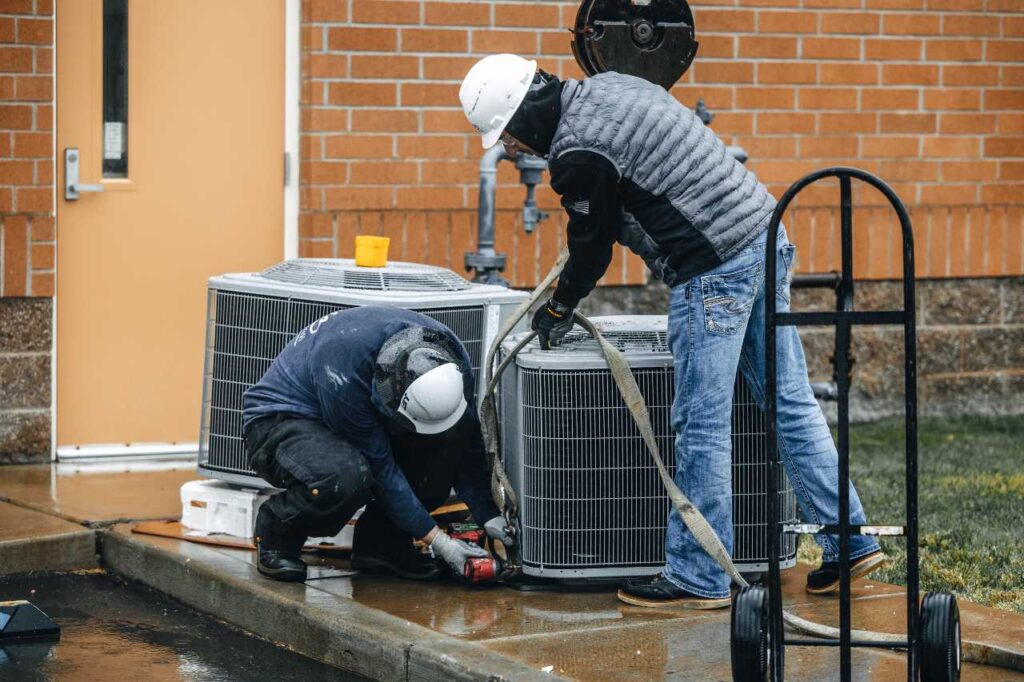In the scorching heat of summer, few things are as essential as a well-functioning air conditioner (AC). Whether you rely on it to cool your home, office, or any other space, its efficiency directly impacts your comfort and energy bills. To ensure your AC runs smoothly throughout the season and beyond, regular maintenance is crucial. Let’s delve into why AC maintenance matters and what steps you can take to keep your system in top shape.
Why AC Maintenance?
- Extended Lifespan: Like any mechanical system, regular maintenance can significantly extend the life of your air conditioner. A well-maintained AC is less likely to break down prematurely, sparing you from costly repairs or replacements.
- Energy Efficiency: A properly maintained AC operates more efficiently, consuming less energy to cool your space. This efficiency not only lowers your carbon footprint but also reduces your monthly utility bills.
- Improved Air Quality: AC units can accumulate dust, pollen, and other allergens over time. Regular maintenance includes cleaning or replacing filters, improving indoor air quality and reducing respiratory issues.
- Preventive Care: Routine maintenance allows HVAC professionals to identify and address minor issues before they escalate into major problems. This proactive approach saves you from unexpected breakdowns during peak usage periods.
DIY Maintenance Tips
While some aspects of AC maintenance require professional expertise, there are several tasks you can perform yourself to keep your system running smoothly:
- Regular Cleaning: Keep the area around the outdoor unit free from debris like leaves or grass clippings. Indoors, regularly clean or replace air filters according to manufacturer recommendations.
- Check Thermostat Settings: Ensure your thermostat is set correctly to optimize comfort and energy efficiency. Consider upgrading to a programmable thermostat for greater control and savings.
- Inspect Ductwork: Periodically inspect ducts for leaks or gaps. Seal any leaks with appropriate materials to prevent cooled air from escaping.
- Monitor Refrigerant Levels: Low refrigerant levels can indicate a leak or another issue. If you notice a decrease in cooling efficiency, contact a professional to inspect and recharge your system.
Professional Maintenance
While DIY maintenance is beneficial, scheduling professional maintenance at least once a year is essential. HVAC technicians can perform comprehensive inspections and tasks such as:
- Inspecting Electrical Connections: Ensuring connections are tight and voltage/amperage readings are within manufacturer specifications.
- Lubricating Moving Parts: Keeping motors and bearings well-lubricated to reduce friction and energy consumption.
- Checking System Controls: Verifying the start cycle, operation sequence, and overall system performance.
- Cleaning Coils: Cleaning evaporator and condenser coils to remove dirt and debris that can hinder heat transfer.
Conclusion
Investing in AC maintenance is investing in your comfort, health, and savings. By taking proactive steps to care for your air conditioning system, you not only ensure it operates efficiently but also prolong its lifespan and reduce the likelihood of costly repairs. Whether you’re a homeowner or a business owner, the benefits of regular AC maintenance are undeniable. So, don’t wait until the heat is unbearable—schedule your maintenance today and stay cool all summer long!






